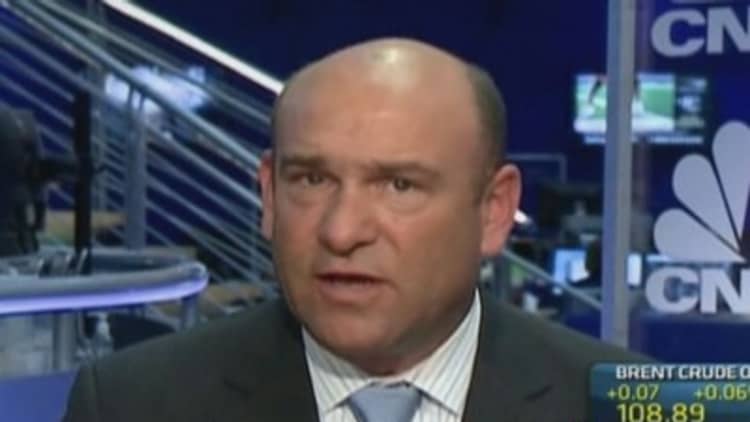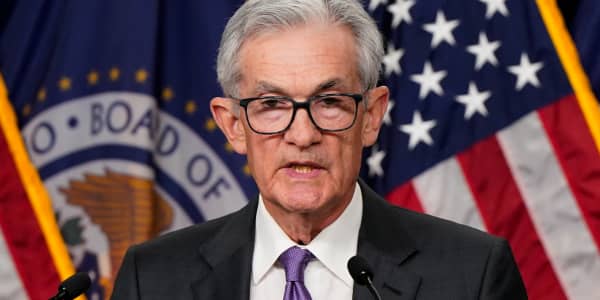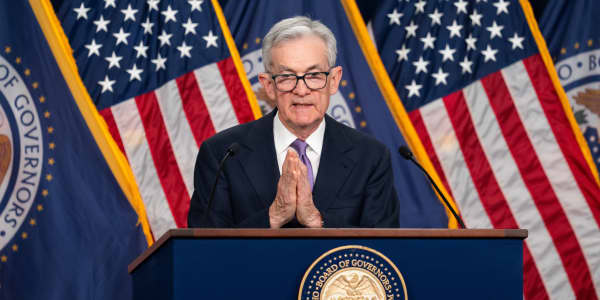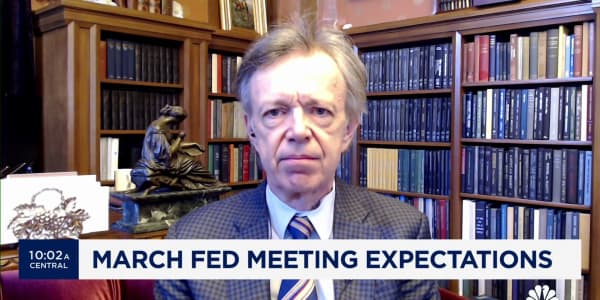
A special European Central Bank edition of the CNBC Fed Survey shows the stakes are high for Mario Draghi and his fellow European central bankers going into their meeting Thursday.
The survey of 30 market participants, including economists, strategists and fund managers, finds that 65 percent of them expect the ECB to take at least one of three substantial actions: lowering the refinance rate, cutting the deposit rate or announcing a long-term refinance operation or LTRO. About half of the respondents expect two of those three actions to be announced and a quarter think all three will happen.
The leading choice: 55 percent think the ECB will cut the refi rate by an average of 11 basis points from the current level of 25 basis points; 52 percent think the deposit rate will be reduced to negative 10 basis points, on average. That would make the ECB one of the few central banks ever to have posted a negative official rate. A third of respondents look for an LTRO and a third say the ECB could do quantitative easing outright.
Read MoreEuro near recent lows, undermined by ECB easing expectations
"Monetary policy is approaching a critical split in the road as the ECB shifts to more ease, the Fed begins to tighten, and the BOJ maintains its current stance," Lynn Reaser of Point Loma Nazarene University wrote in response to the survey.
Respondents forecast euro zone gross domestic product to rise 1.11 percent this year compared to 2013 and for inflation to run below the ECB's target at just 0.7 percent. The European currency is seen dropping to $1.30 per euro.
Two-thirds expect the ECB to reiterate guidance that rates will remain low for a long time.
Read More Markets await ECB's verdict with bated breath
William Larkin, portfolio manager at Cabot Money Management, wrote: "Deflationary factors today are being generated from surplus capacity across the globe, which is keeping interest rates lower longer than a rational investor might have expected."
As for the U.S. Federal Reserve, respondents look for less in the way of rate hikes and assets sales next year. The average expected federal funds rate in the survey plunged to just 0.68 percent for 2015, from about 1 percent in the April survey and market participants now do not expect the Fed to reduce its balance sheet until March 2016, four months later than in the prior survey.
Clearly, the low yield on 10-year U.S. government debt has taken market participants by surprise. After forecasting a yield for this June of 2.8 percent to 3.4 percent for the past year, the forecast has plummeted to 2.53 percent. The outlook for the 10-year yield for the end of the year declined to 2.9 percent from 3.1 percent.
Read More Jim O'Neill: Expect Draghi to deliver
Diane Swonk, an economist with Mesirow Financial, wrote in response to the survey: "Markets are underestimating the impact of falling deficits on Treasury bond yields. The shortfall in supply is quite substantial, especially in a world where (Russian President Vladimir) Putin has shown his hubris."
Market participants are in sharp disagreement over the reason for lower long-term U.S. bond yields. Market participants said about 21 percent of the decline is the result of expectations for lower growth, 25 percent is the result of a flight to safety and 18 percent of the decline results from reduced expectations for U.S. inflation. About 36 percent ascribed the decline to other reasons, including lower U.S. deficit forecasts, uncertainty over earnings, lagged effects from QE and expected actions by the ECB.
Read MoreEuro gets a respite after euro zone inflation data
The U.S. growth forecast for 2014 took a substantial hit, falling to 2.3 percent year over year from 2.75 percent, after a disappointing first quarter growth of negative 1 percent. The outlook for 2015 came down as well, dropping to 2.8 percent from 3 percent.
But Allen Sinai, chief global economist of Decision Economics, remains highly optimistic, saying: "This will probably be the second longest postwar economic expansion and nearly the best equity bull market since World War II."
—By CNBC's Steve Liesman.





